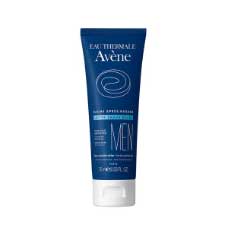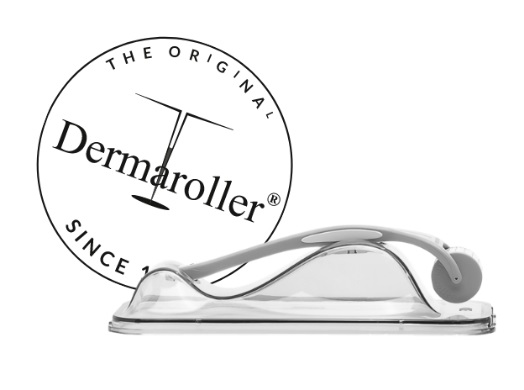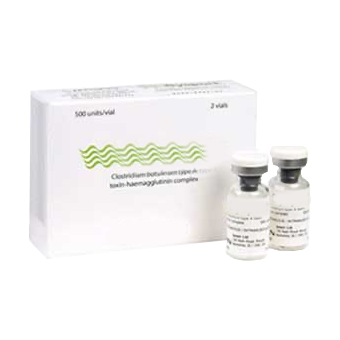 Hailed as a gold standard skincare buy, vitamin C promises glowing skin, fewer wrinkles, and a more even complexion. It’s the active ingredient in countless serums and moisturisers, and for many, it’s the cornerstone of their daily skincare regiment. But for others, this cult favourite comes with an unwelcome side effect—spots.
Hailed as a gold standard skincare buy, vitamin C promises glowing skin, fewer wrinkles, and a more even complexion. It’s the active ingredient in countless serums and moisturisers, and for many, it’s the cornerstone of their daily skincare regiment. But for others, this cult favourite comes with an unwelcome side effect—spots.But, does vitamin C itself really cause acne, or is this just another skincare myth? We spoke to two EV Experts to get the lowdown.
Vitamin C explained
One of the most well-researched and effective ingredients available in non-prescription skincare, vitamin C is a powerful antioxidant. “It stimulates collagen production, reduces hyperpigmentation by inhibiting melanin production, and provides antioxidant protection against UV damage, infrared radiation, and pollution," shares Dr Emmaline Ashley, Aesthetic Doctor and Founder, Ashley Aesthetics."Studies show that vitamin C can improve the appearance of fine lines, fade dark spots, and even enhance the effectiveness of sunscreen when used in the morning," Ashley continues. "It’s this strong evidence base, especially for L-ascorbic acid, that makes it such a sought-after active in both at-home skincare and professional treatments.”
The acne link
But for all its benefits, vitamin C doesn’t always play nicely with everyone’s skin. It’s not uncommon to hear people complain of acne flare-ups after adding a new vitamin C product to their routine.According to Dr Raquel Amado, Aesthetic Doctor and Founder, Dr Raquel Skin & Medical Cosmetics, these reactions are very real. “Vitamin C skincare can potentially trigger acne or acne-like breakouts in some individuals,” she says. “The reaction may present as small whiteheads, closed comedones, or inflammatory spots.” But, is vitamin C to blame? Not entirely. In a lot of cases, it’s not the ingredient itself that’s causing chaos, but the way it’s delivered.
Formulation and skin compatibility
Many vitamin C products are formulated with a cocktail of other ingredients, and some of these can be problematic. “Serums often contain silicones, oils, or preservatives that clog pores or irritate sensitive skin,” explains Dr Amado. “Additionally, L-ascorbic acid, the most potent form of vitamin C, is highly acidic. It can disrupt the skin’s natural pH, leading to irritation and inflammation,” she adds.Dr Ashley agrees that irritation and inflammation are often the starting points for breakouts. “Ascorbic acid is usually delivered in a water-based serum with a very low pH. That acidity can be irritating, particularly in concentrations above 10 to 15 percent. And if the formula isn’t stable, the vitamin C can oxidise and form byproducts that trigger inflammation too.”
In other words, it’s rarely as simple as saying “vitamin C causes acne.” More often, it’s a question of whether the product is suited to your skin type, and whether the formula plays well with the rest of your routine.
Are certain skin types more at risk?
If your skin tends to react easily, you may need to approach vitamin C with caution. Sensitive skin types, as well as oily or acne-prone skins, are more likely to experience breakouts when using vitamin C. However, it’s not just your skin type that you should consider—the condition of your skin matters too. Those with a compromised barrier, often caused by over-exfoliating or using too many potent actives, are also more vulnerable to irritation.On the flip side, if your skin type is of a more ‘normal’ disposition and generally tolerant of most ingredients, you’re less likely to run into issues, especially if you introduce vitamin C slowly and stick to lower percentages in stabilised formulas.
Why more isn’t always better
One common misconception about vitamin C is that a higher percentage means better results. “Higher concentrations—anything above 15 percent—are more likely to irritate the skin,” says Amado. “Lower concentrations, between 5 to 10 percent, can still be effective but are generally much gentler.”And it’s not just the strength that matters, the form of vitamin C is equally important. While L-ascorbic acid is the gold standard, it’s also the most aggressive. Gentler derivatives such as sodium ascorbyl phosphate and magnesium ascorbyl phosphate are less likely to irritate, and can be a better option for those with reactive skin.
It’s also wise not to overdo it when it comes to how many of your skincare products contain this popular antioxidant. Vitamin C can crop up in toners, serums, moisturisers and even sunscreens, which means the total amount in your routine may be higher than intended. “Improper layering or overuse of vitamin C can definitely cause issues, like irritation, barrier disruption, and breakouts” says Dr Ashley.
Not only that, “people often unknowingly combine ascorbic acid with other active ingredients like AHAs, BHAs, or retinoids, which can amplify irritation,” she adds.
Her advice is to keep things simple: one vitamin C product at a time, ideally used in the morning, on clean skin, before moisturiser and sunscreen. And if you’re already using strong actives like AHA's or retinoids, give your skin a break and alternate rather than combine them.
What to do if you break out
If you suspect your vitamin C product is behind your latest breakout, “the first step is to stop and allow the skin barrier to recover,” says Dr Ashley. “Then look at the ingredient list. Is the issue the vitamin C, or could it be another element in the formula?” Switching to a lower concentration or a gentler derivative can often make a big difference.Dr Amado recommends reaching for calming ingredients like niacinamide, ceramides and hyaluronic acid to restore balance. But, if irritation continues even after switching, it may be time to consult a skin expert to rule out any underlying sensitivities or conditions.
Vitamin C alternatives
If your skin simply can’t tolerate vitamin C, there are plenty of alternatives that offer similar benefits without the risk of breakouts. Niacinamide is often the first port of call. It helps to brighten, reduce inflammation, regulate oil and strengthen the skin barrier, all without the acidity of vitamin C.Azelaic acid is another strong contender, particularly for those with rosacea or acne-prone skin. “It gently fades pigmentation, reduces redness, soothes inflammation, and has antimicrobial properties to help keep spots at bay,” shares Ashley.
Other brightening ingredients worth considering include alpha arbutin, liquorice root extract, resveratrol and coenzyme Q10. “These offer antioxidant benefits and skin-evening effects, without the volatility of traditional vitamin C, making them particularly beneficial for sensitive or reactive skin types,” adds Dr Amado.
So, it seems vitamin C isn’t foolproof after all, and if you’re noticing new breakouts, don’t write off your entire routine, but do investigate your vitamin C product—the type, the concentration, the other ingredients, and how often you're using it. Like with most skincare buys, just because others rave about them, doesn’t meant they’ll be right for you. Luckily, there are a number of vitamin C alternatives you can try if acne does ensue.

 Added to basket
Added to basket

 Unapplied Changes
Unapplied Changes



















